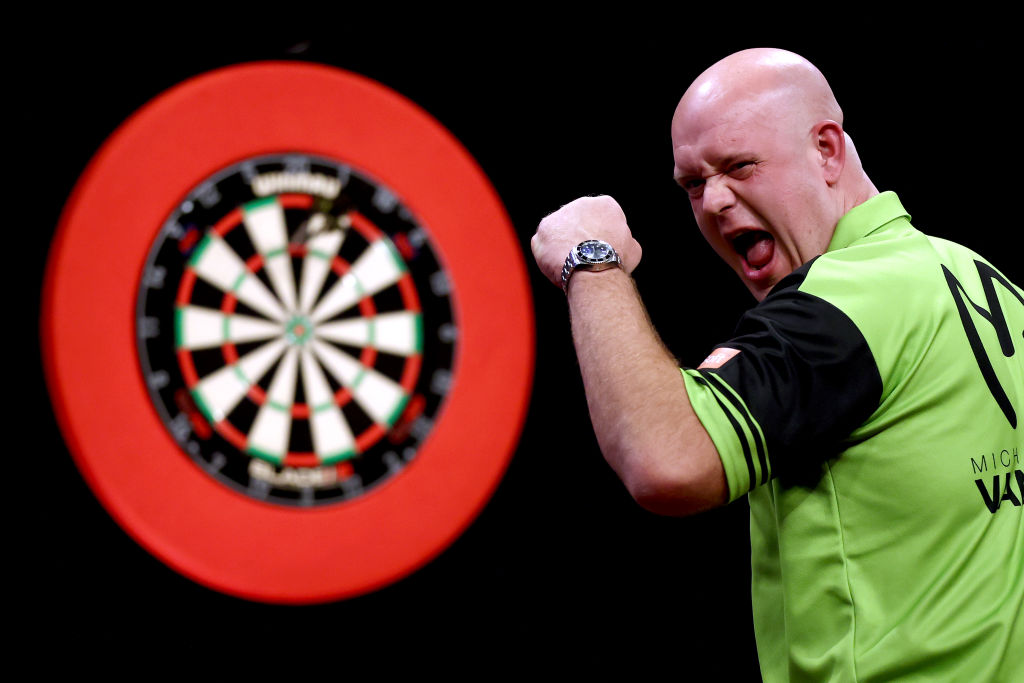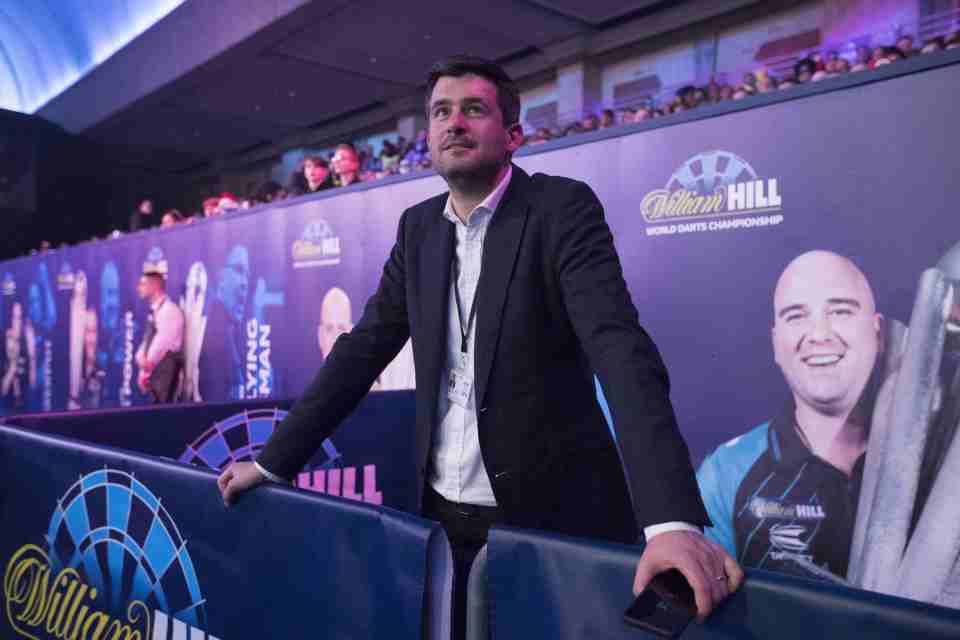Taking flight: Inside the rise and rise of darts – and where the sport is heading next

“More people in this country know who Michael van Gerwen is – a darts player from the Netherlands – than who the fastest British man and woman are,” declares Matt Porter, chief executive of the Professional Darts Corporation.
Porter might have a dog in that particular fight but he is on the money about the PDC’s biggest star Van Gerwen, as a quick straw poll in the office easily confirms.
And while his statement also reflects the decline of track and field, it is mostly about the rise and rise of darts from British pub pastime to international arena-filling pay-TV juggernaut that even counts Prince Harry as a fan.
From its famed boozy end-of-year bonanza at Alexandra Palace, which the royal rocked up to in 2014, to sold-out shows in Eastern Europe, Australia, Asia and America, the PDC sells half a million tickets and turns over £52m a year.
Revenue has increased four-fold in a decade, driven by its expansion into Europe to cater to a sizeable German and Dutch fanbase and international broadcast deals with the likes of Dazn, Viaplay and Fox to complement its domestic contracts with Sky. In January, it staged its first show in Bahrain.
The sport is now as big a part of the business at Matchroom as the boxing shows featuring the likes of Anthony Joshua which perhaps generate bigger headlines for the Essex-based promotions business started by Barry Hearn and now run by his son Eddie.
“The sport has its roots in Britain and pubs but it’s been transported to a different place mostly as a result of what’s happened in the last 20 years,” says Porter, who joined Matchroom in 2001, the year it took a majority stake in the PDC. “It appeals to a broad spectrum and it has just snowballed.”
PDC eyes new frontiers for diversifying darts
That appeal will be on show at the Premier League Darts Play-offs at the O2 on Thursday next week, when defending champion Van Gerwen will be aiming to surpass the record of six titles that he shares with Phil Taylor in front of a raucous 10,000-strong crowd.
The Play-offs have been staged away from the Greenwich arena for the last three years but Porter says the PDC intends to keep making a noise at the world’s busiest music venue.
“It’s exciting to walk down the corridors backstage, look at pictures of people who have performed there and see our dart board next to Prince or Adele,” he says.
Darts is increasingly cosmopolitan: female attendees have risen from just 10 per cent to a third, a handful of women have featured in the World Championships, and Porter says the average age of players has fallen from mid-40s to mid-20.

The PDC is also planning a push in south east Asia, although it remains acutely aware of its blue-collar base and is not about to desert traditional venues such as Blackpool’s Winter Gardens, which hosts the World Matchplay in July.
“We could move it out of there into a much bigger arena and make a lot more money but that’s the home of that event, like the Worlds at Ally Pally,” he says. “We’re not going to be greedy for the sake of it.”
The sport’s everyman appeal has been a key component of its soaring popularity, adds Porter. “Anybody can pick up a dart and throw it at a dart board – it’s very relatable. You look at a darts player and you think they could be a mate down the pub or a man or woman who grew up on your street.”
Porter has been chief executive of the PDC for 15 years but concedes that even he didn’t foresee its huge success. “No, I don’t think so. [When he joined] We had maybe three or four televised events per year, we didn’t really have a tour, and events were literally still in pubs.”
PDC, Matchroom and private equity interest
Matchroom’s darts and boxing fuelled upward trajectory has attracted attention from private equity and this month the company ceased ultimately fruitless talks over a significant minority investment from CVC Capital Partners, the former owner of Formula 1 whose sports properties now include stakes in Six Nations and Premiership Rugby.
“It’s something that we looked at and considered but we would only work with a partner who we felt was going to be a strategic asset and enable us to expedite our growth,” says Porter. “It’s not something we’d rule out but it’s not something we’re desperate for either.”
Which brings us back to British athletics – in dire need of a short-term funding injection and the sort of long-term revival enjoyed by darts and boxing. What would Matchroom do with it?
“When I was growing up every single person knew who Linford Christie, Sally Gunnell and Colin Jackson were. These people were heroes in the 90s. Nobody knows who the top British athletes are now,” Porter says.
“It’s all about getting your profile out there and getting your branding right. I’m not criticising anybody else but they [UK Athletics] maybe need to evaluate the way they’re getting their product in front of people at the moment.”
